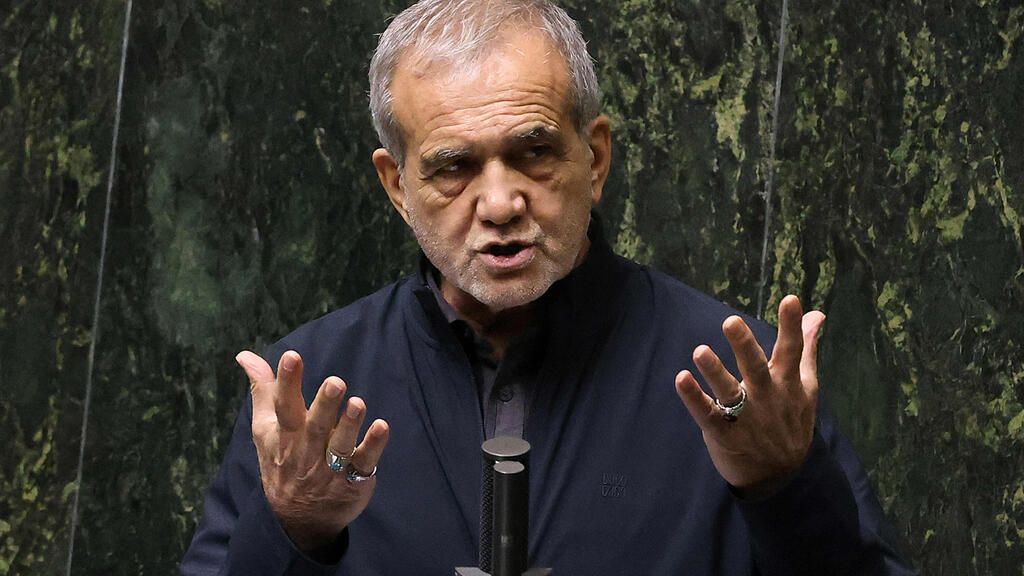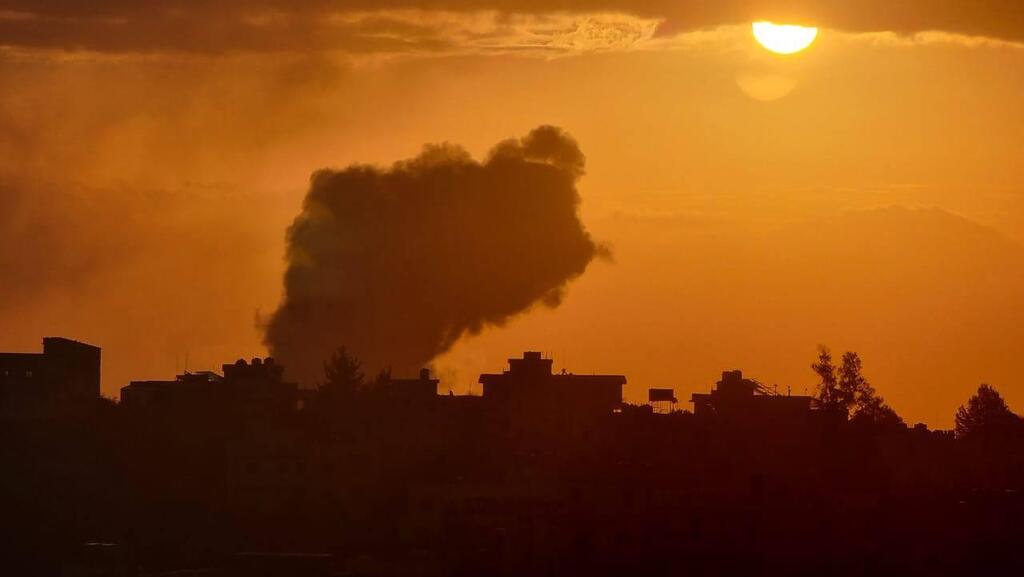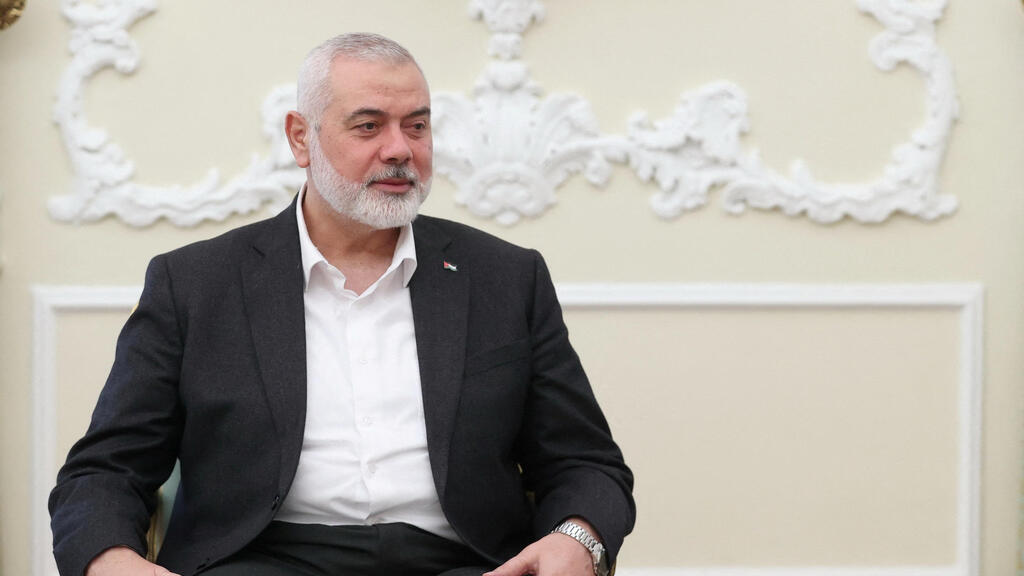Getting your Trinity Audio player ready...
"We want to live in peace, we don't want war," Iranian President Masoud Pezeshkian said. "It is Israel that seeks to create this all-out conflict," he told reporters upon arriving in New York to attend the UN General Assembly.
"We are willing to put all our weapons aside so long as Israel is willing to do the same," he said adding that Israel wants to drag the Middle East into a full-blown war by provoking Iran to join the nearly year-old conflict between Israel and Tehran-backed Hezbollah in Lebanon, he said on Monday, warning of its "irreversible" consequences.
The Foreign Ministry in Tehran was quick to issue a statement denying the reported comments by the president.
Pezeshkian, a relatively moderate politician who was elected in July promising a pragmatic foreign policy, accused the international community of silence in the face of what he called "Israel's genocide" in Gaza.
Pezeshkian's call to resolve the Middle East conflict through dialogue came after Israel unleashed an intense wave of air strikes against Hezbollah on Monday, making it the deadliest day in Lebanon in nearly a year of conflict between Israel and the Tehran-backed terror group.
"We will defend any group that is defending its rights and itself," Pezeshkian said when asked whether Iran will enter the conflict between Israel and Hezbollah. He did not elaborate.
Pezeshkian said weapons of mass destruction have no place in Iran and its military structures. "We are still ready to live up to the same framework" that was agreed on in 2015, he said, but the Europeans tried to get Iran to sign a different accord, adding that Iran was willing to sit down with Europeans and Americans to negotiate."
Iran's regional policy is set by the elite Revolutionary Guards, who answer only to Supreme Leader Ayatollah Ali Khamenei, the country's top authority.
Pezeshkian has repeatedly affirmed Iran's anti-Israel stance and its support for resistance movements across the region since taking office last month.
Asked if Iran would retaliate for the assassination of Palestinian militant group Hamas' leader Ismail Haniyeh on its soil in late July, Pezeshkian said "We will respond at the appropriate time and place, in an appropriate manner".
Haniyeh's killing, which both Tehran and Hamas have blamed on Israel, has aroused fears of direct conflict between Tehran and its arch-foe Israel in a region shaken by Israel's war in Gaza and a worsening conflict in Lebanon.
Iran's powerful Guards and Khamenei have vowed "severe" revenge for Haniyeh's killing, which happened while he visited Tehran. So far, Tehran has held back from direct retaliation against Israel, which has neither confirmed or denied its involvement.
Three senior Iranian officials told Reuters in August Tehran has been involved in intense dialogue with Western countries and the United States to calibrate retaliation against Israel for Haniyeh's assassination.
"We were told that within a week there will be a ceasefire agreement" between Israel and Iran-backed Hamas, "but that week has never come and instead Israel has kept expanding its attacks," Pezeshkian said.
Pezeshkian insisted that Iran has not and will not supply Russia with ballistic missiles to attack Ukraine. "We have never approved of Russia's aggression against Ukrainian territory," he said, adding that the two countries should establish a dialogue.




